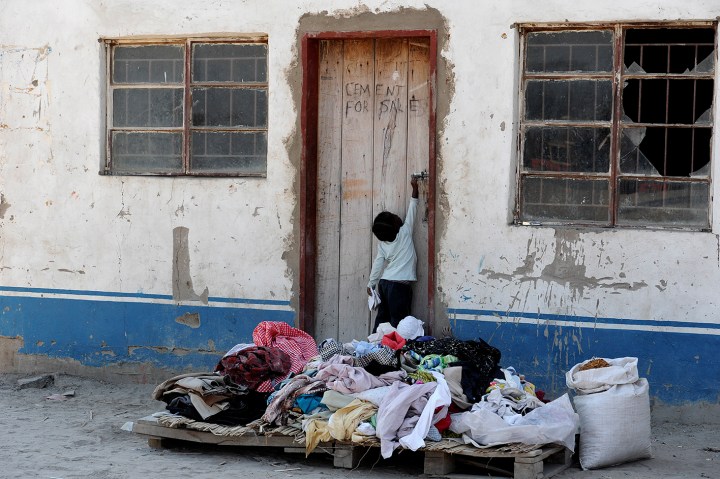Coronavirus OP-ED
Years of failing to invest in Zambian healthcare tragically evident amid Covid-19

Zambia is a poor country, but poverty does not exempt it from ensuring that the available public resources are used in line with the country’s human rights obligations.
By Muleya Mwananyanda
In the early hours of 2 May 2020, a passenger bus plunged into the Kabompo river in Zambia’s North Western Province, killing four people instantly. More than a dozen others sustained serious injuries. The bus was coming from Chavuma and was headed to Solwezi.

Map where bus accident happened which four people died including Chali Mutambo.
(Photo: the worldnews.net/Wikipedia)
Among the fatalities was 24-year-old Ian Chali Mutambo, a lab technician working at the Zambezi district hospital. He was travelling more than 700km, carrying Covid-19 test samples for testing in the country’s capital, Lusaka. There are only three testing centres in the entire country of almost 18 million people. A bus journey from Zambezi to Lusaka could take up to two days.
The death of this young man, starting out in his career, has sparked national outrage and has brought to the fore what we knew before Covid-19 – the stark inequalities and the woefully inadequate healthcare systems and transport infrastructure, not only in Zambia, but across the African continent.

Chali Mutambo who died in the bus accident at Kabompo River-North Western Province.
(Photo: ogeneafrican.com/Wikipedia)
As healthcare facilities brace for high demand during Covid-19, this heartbreaking bus crash reveals the public health burden of poor road safety. Road traffic accidents are the third largest cause of death in Zambia, claiming about 2,000 lives annually, according to a study published in 2018 by BMC Public Health, an open-access peer-reviewed journal. Too many people have been killed, injured or have lost loved ones as a result of poor road safety and infrastructure. Risks of accidents are higher when using public vehicles.
The government has an obligation to protect health workers, who like Mutambo, are on the frontline of the Covid-19 pandemic and continue to deliver services despite the personal risks to them and their families. During the regular Covid-19 briefing, Health Minister Chitalu Chilufya admitted that it was not unusual for health workers to transport medical samples by public transport.

Covid-19 Samples. (Photo: theglobepost.com/Wikipedia)
Choosing to send Mutambo on public transport with a poor safety record, speaks volumes about the value placed on health workers and other commuters in the country. It is welcome that both the Biomedical Union of Zambia and the government have declared investigations into the incident and it is vital that they urgently publish the findings. Mutambo’s family and the public deserve answers to how he ended up on a bus with a dubious safety record.
Given that there are only three testing centres for Covid-19 nationally, this tragic incident also raises important questions about the national lack of diagnostic equipment that is generally needed for testing. In the wake of this shortfall, many Covid-19 test samples will need to be transported across the country. Zambia’s national regulations and similar World Health Organisation guidelines place a duty on authorities to ensure that medical samples are packaged and transported safely, efficiently and in line with health and legal requirements so that everyone involved is protected.
Investigations must also assess what steps were taken by the authorities to ensure transporting potentially hazardous Covid-19 samples on a public bus met the protocols.
In addition, Mutambo’s untimely death highlights ongoing challenges for rural and poorer communities to access hospital care and services. Too many are accustomed to transport barriers to health services, due to long distances from facilities, poor road conditions and the high costs of private transport.
Mutambo’s death, while serving as a frontline worker in the Covid-19 response, illustrates exactly why countries must take a human rights approach to dealing with this pandemic.
Zambia is a poor country, but poverty does not exempt it from ensuring that the available public resources are used in line with the country’s human rights obligations. Zambia has received assistance from the donor community for the fight against Covid-19, including for the protection of health workers. The government must ensure their lives are protected so that in future, all protocols for the transportation of infectious substances are met.
This tragedy is a sad reminder of the challenges countries such as Zambia face, but it must also serve as an urgent call to action for authorities in the country and elsewhere on the continent to prioritise and invest in healthcare, so all persons are guaranteed their right to health.
The government will need to invest in greater diagnostics capacity, and safe and efficient ways of transporting Covid-19 tests given the likely need to scale up testing in the event of a significant outbreak of Covid-19. DM/MC
Muleya Mwananyanda is the Deputy Director for Research for East and Southern Africa at Amnesty International.
"Information pertaining to Covid-19, vaccines, how to control the spread of the virus and potential treatments is ever-changing. Under the South African Disaster Management Act Regulation 11(5)(c) it is prohibited to publish information through any medium with the intention to deceive people on government measures to address COVID-19. We are therefore disabling the comment section on this article in order to protect both the commenting member and ourselves from potential liability. Should you have additional information that you think we should know, please email [email protected]"


















 Become an Insider
Become an Insider